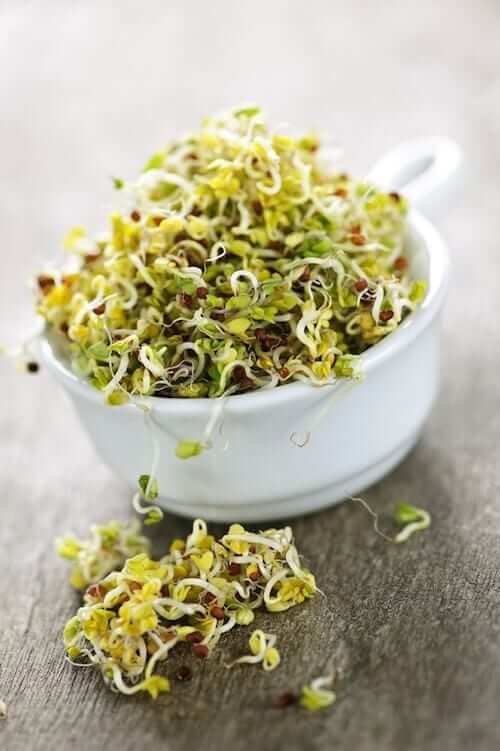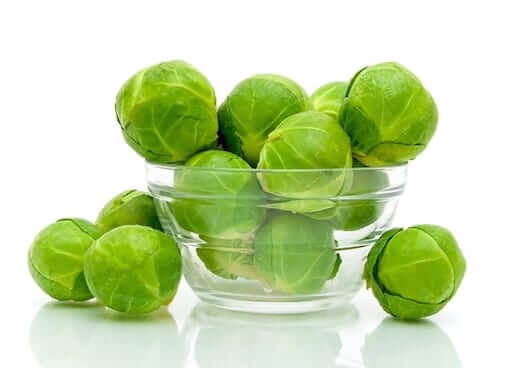What are Alfalfa Sprouts?
Alfalfa sprouts are actually flowers that are harvested from the plant of the same name. While most people prefer to buy them from grocers, others enjoy growing alfalfa sprouts at home. Although small, they are surprisingly loaded with vitamins and other nutrients. Sprinkling a handful of these tasty sprouts in your meals can boost your…
This post may contain affiliate links. Please read our disclosure policy.
Alfalfa sprouts are actually flowers that are harvested from the plant of the same name. While most people prefer to buy them from grocers, others enjoy growing alfalfa sprouts at home. Although small, they are surprisingly loaded with vitamins and other nutrients. Sprinkling a handful of these tasty sprouts in your meals can boost your nutrient consumption.
Alfalfa Sprouts Nutritional Profile
Alfalfa sprouts carry most of the nutrients that the parent plant needs to grow. Because of this, they are filled with a variety of essential vitamins and minerals. It boasts high quantities of vitamins A, B, C, E as well as vitamin K. Studies claim that alfalfa sprouts can also give you a good amount of fiber too. To get the most nutrients, choose homegrown sprouts or eat store-bought varieties while still fresh.
Health Benefits of Alfalfa Sprouts
Many cooks dash their meals with crushed alfalfa sprouts to add a little to salads and other dishes. In addition to flavor, a serving of these sprouts can provide a great vitamin boost. Vitamin A is popularly associated with improving eyesight, but it also builds up immunity against disease-causing bacteria.
Alfalfa sprouts contain a high amount of vitamin B complex, which is actually a collection of micronutrients that support bodily processes from metabolism to hair growth. Vitamin C and K strengthen the body’s ability to heal, while vitamin E fights cancers by protecting cells.
In addition to being a good source of vitamins, alfalfa sprouts contains some dietary fiber. While every person needs fiber to digest food and pass waste normally, it is especially beneficial for those with digestive problems. Fiber can counter constipation, diarrhea and irregular bowels.
How to Grow Alfalfa Sprouts at Home
Health experts advise sprout-lovers to grow their own batch at home. This is because there have been past reports about E. coli outbreaks among commercially prepared alfalfa sprouts. Growing sprouts is actually quite simple, and can be done easily in your kitchen.
Step 1:
To grow ½ pound of alfalfa sprouts, take 2 tablespoons of seeds and rinse them under cold water.
Step 2:
Place sprout seeds in a jar and cover with cold water. Soak seeds for 10-12 hours.
Step 3:
Drain the water and pour fresh, cool water inside the jar and swirl around to rinse. Drain out the water. Shake the jar so that the seeds coat the sides of the jar and allow them to sit in 70-80 degree temperature. Avoid light or heat.
Step 4:
Keep rinsing the seeds and draining the water out of the jar daily for the next 5-6 days. Place the jar in sun light for 15-20 minutes.
Step 5:
Once fully sprouted, you can eat them immediately or store in the fridge for later. Make sure you eat your alfalfa sprouts within 7 days of maturity.
Alfalfa sprouts might be small but they are big on nutrition. They offer a variety of vitamins and add an interesting flavor to many meals. Learn how to grow alfalfa sprouts at home and use in salads, soups and stews.




Leave a Comment